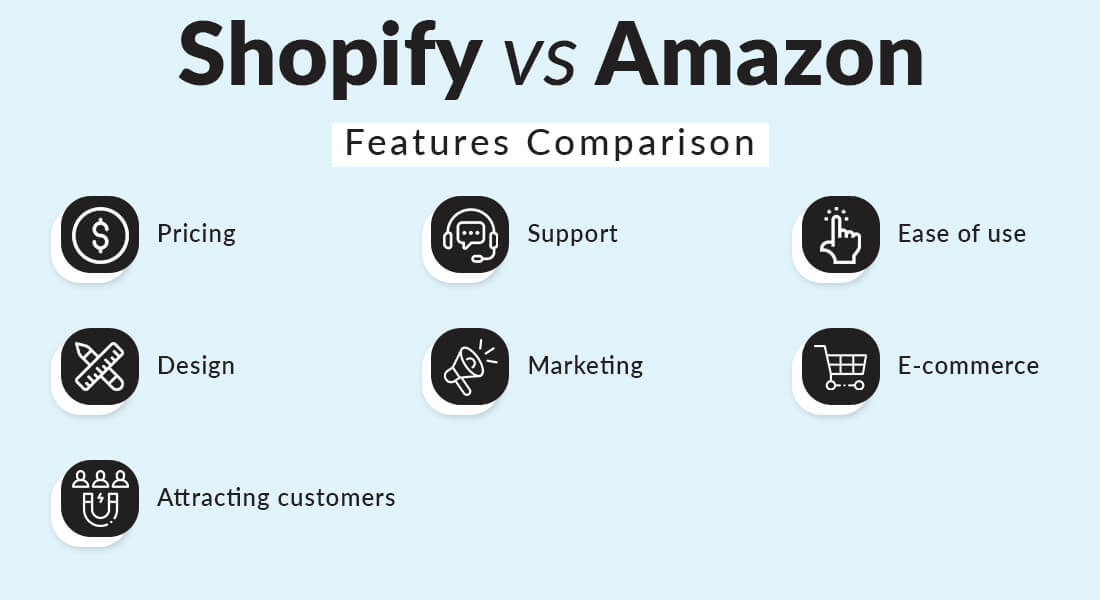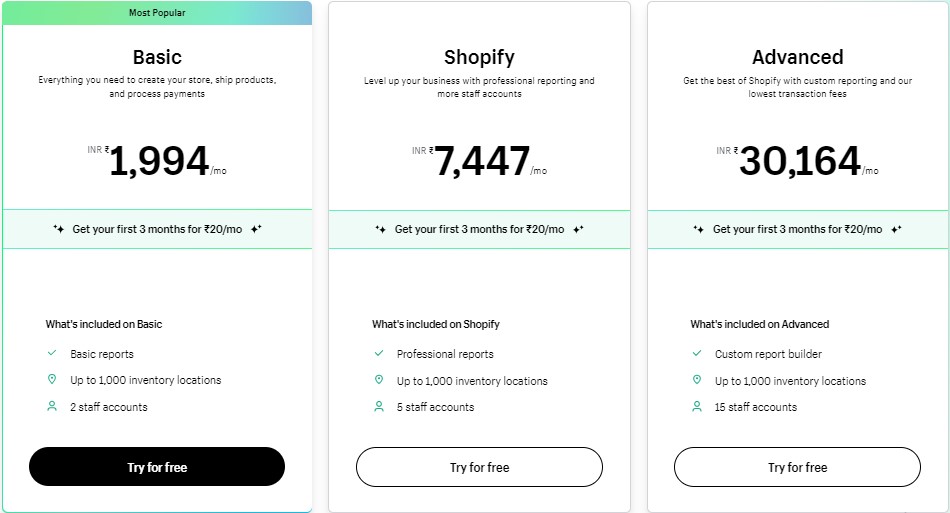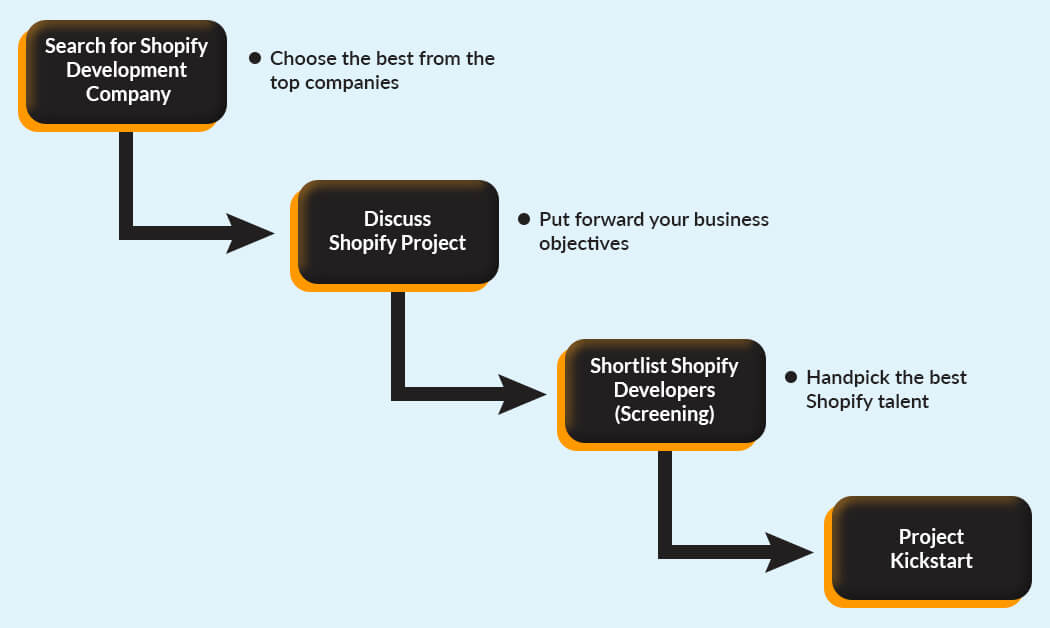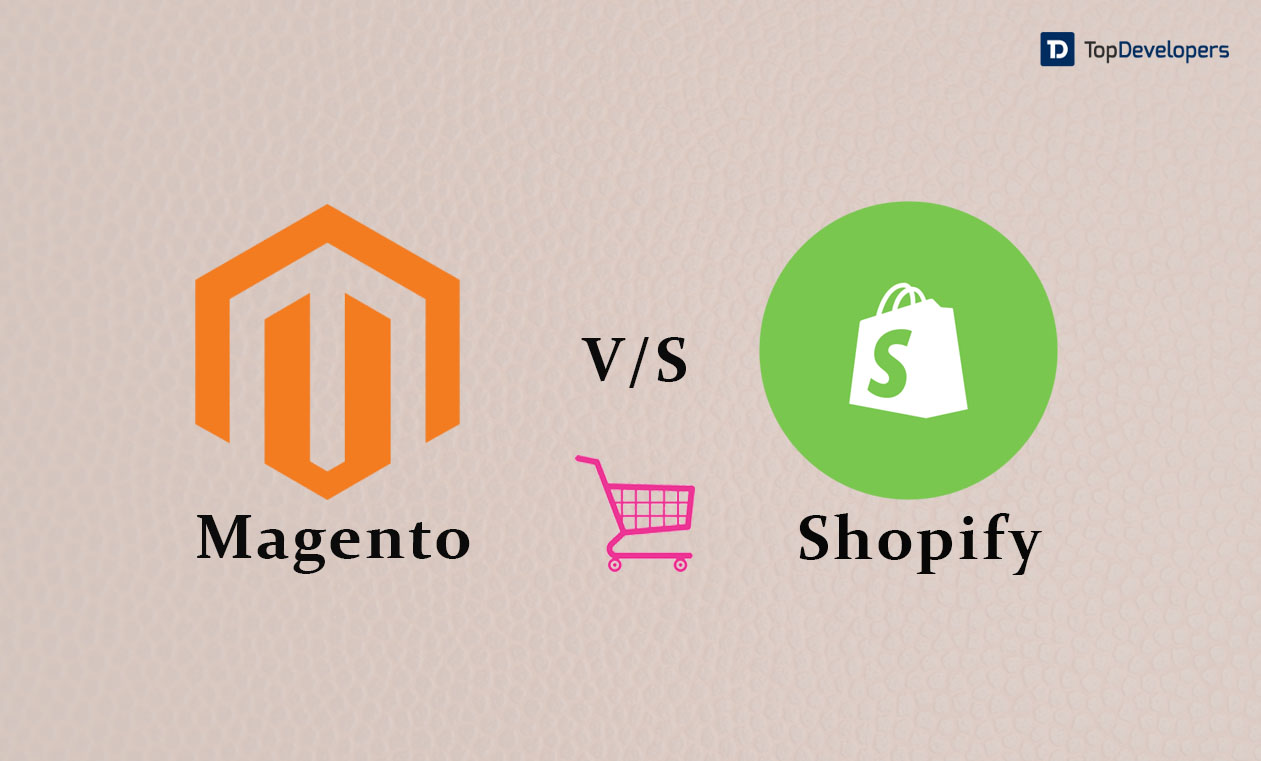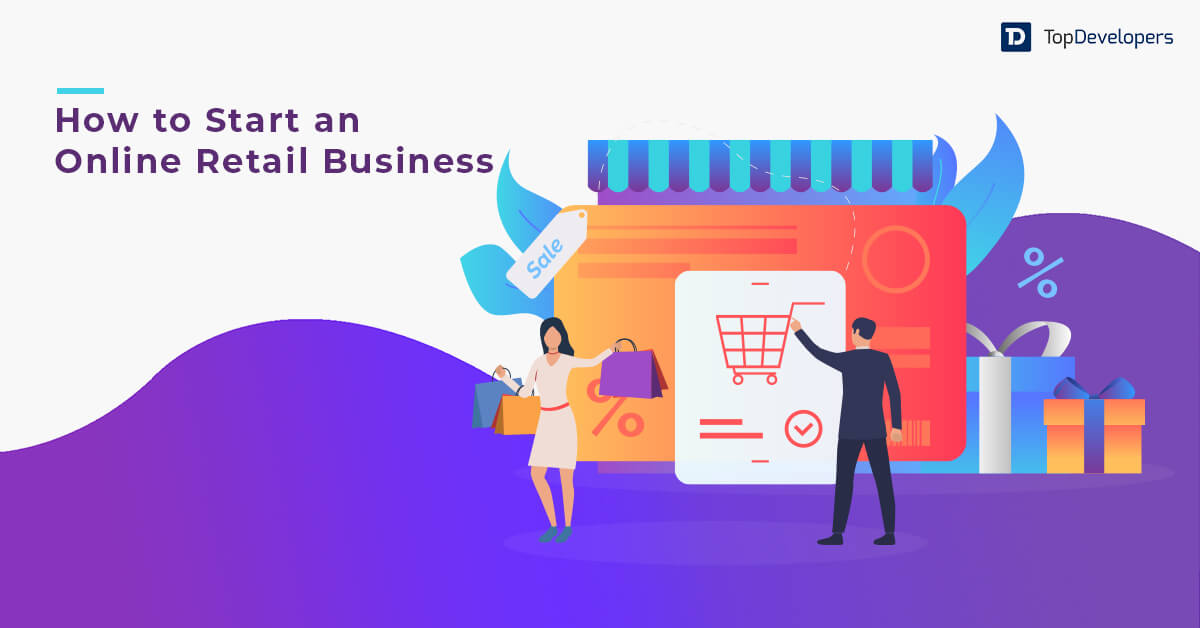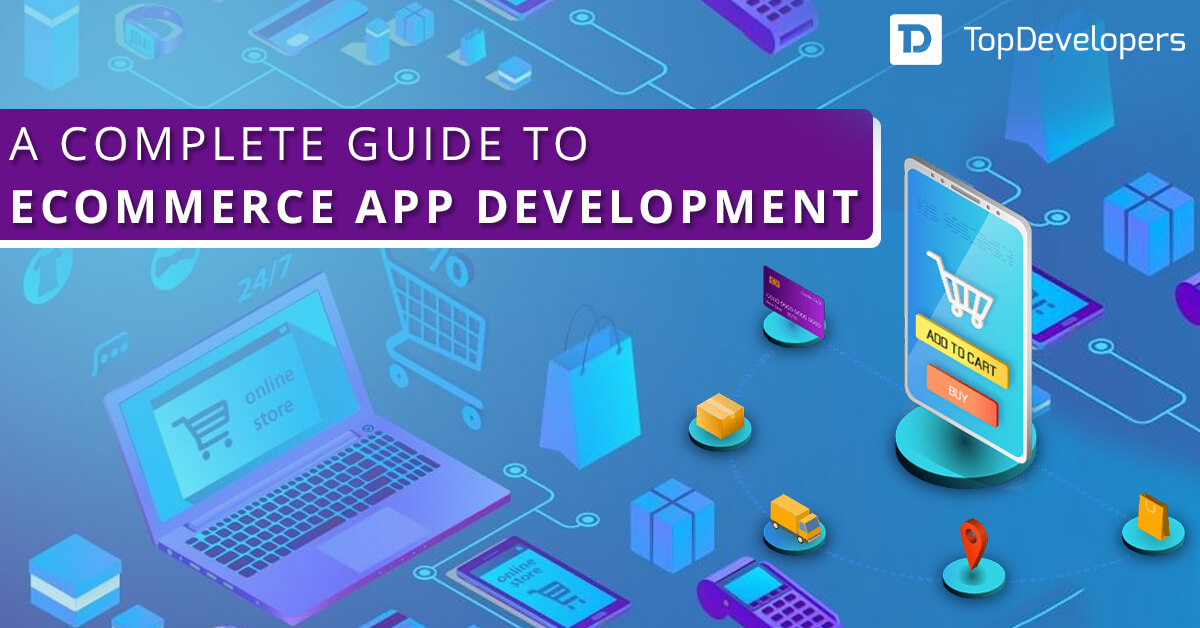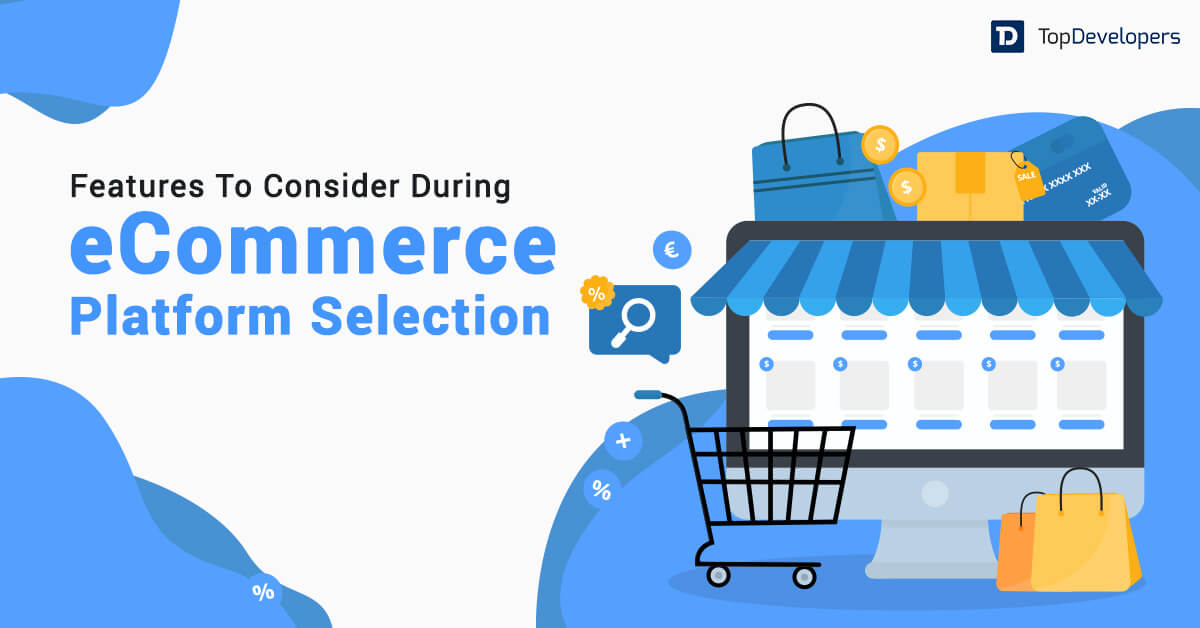
Summary: Shopify vs Amazon comparison is not an easy job as both the eCommerce platforms come with pros and cons. Although from the outside both the platforms might sound similar for eCommerce solutions but they have a lot of differences. So, you want to take your business online but are unclear about selling on Shopify vs Amazon? You are in the right place as we will point out the major difference between Amazon and Shopify in this blog to help you figure out the right platform for online eCommerce.
Online shopping has become a popular trend in recent years; the reasons are clear: unparalleled convenience, amazing varieties, and competitive prices. Online shopping allows customers to browse and buy products anytime and anywhere, without dealing with traffic, crowds, or queues.
If eCommerce is a boon to customers and users, it is no less than a sure-shot opportunity for businesspersons as well. According to Statista, in 2021, retail eCommerce sales touched nearly 5.2 trillion U.S. dollars worldwide, and this figure is expected to grow by 56% over the next years, accounting for nearly$8.1 trillion by 2026.
When you want to make up your mind to go for an eCommerce business, there are two major options: Amazon and Shopify. But, in Amazon vs. Shopify, what to choose? Here we are with our answer.
Table of Contents
What is Amazon?
We are confident that Amazon doesn’t need an introduction as almost the majority of us have an account on Amazon. Amazon is an eCommerce platform where customers can shop for the products they need in their daily life. One who is planning to sell their products has to create a digital storefront on the platform. Amazon technically has its own eCommerce platform called Amazon Marketplace or online Webstore.
Amazon customers tend to prefer stores or products that have higher rankings or positive customer reviews rank higher than the ones that offer poor customer experience. So, what makes Amazon Shopify competitors?
To know that it is essential to know what Shopify is.
What is Shopify?
Shopify is an online eCommerce website development platform that allows users to build different websites by choosing their domain and customizing the UI/UX of the website. In the last couple of years, a lot of businesses have migrated to Shopify owing to its innovative features and ease of use.
How is Shopify different from Amazon? : Quick Overview
It is critical to recognize that Shopify and Amazon perform distinct functions in the eCommerce market. Shopify is the platform where you build a website whereas Amazon is a platform where you can compete with other sellers and stand a chance to gain customer attention and sales.
Selling on Amazon is the equivalent of owning a stall at a popular flea market. You gain from a massive influx of potential clients who come to browse and buy. While these buyers may not be specifically looking for your company, the sheer volume of foot traffic boosts your chances of making transactions.
Using Shopify is similar to hiring a physical place to start your business. Customers actively seek out your brand once they become aware of it, and you have your own dedicated online store. This allows you to develop a distinct brand image and identity. Building a loyal consumer base, on the other hand, necessitates more effort and marketing methods.
Because of these distinctions, Shopify and Amazon cater to different types of online sellers. Amazon accepts both individual sellers and small and medium-sized businesses. Shopify, on the other hand, is appropriate for both small businesses and larger brands that demand more personalization and control over their online store.
Shopify: Pros and Cons
| Shopify Pros | Shopify cons |
|---|---|
| Easy to set up and get started | Monthly subscription fees |
| Customizable themes and designs | Transaction charges and external Shopify payments |
| User-friendly background operations | Limited features |
| Limited features | Limited control over the environment |
| Limited control over the environment | Advanced customization may necessitate coding knowledge. |
| Excellent customer support | Scalability is limited for exceptionally large enterprises. |
| Design that is mobile-friendly and responsive | Control over SEO optimization is limited. |
| Ample educational resources and tutorials | Options for marketplace integration are limited. |
Amazon: Pros and Cons
| Amazon pros | Amazon cons |
|---|---|
| Wider customer base | Higher competition among vendors |
| Enhanced brand visibility | Poor customer experience |
| Fulfillment by Amazon services | Commissions on sale |
| Global reach | Strict regulations and policies |
| Trusted platform for businesses | Limited customized options |
| Easy and user-friendly interface | Higher dependency on Amazon policies |
Shopify vs Amazon: Features Comparison
Shopify and Amazon are two of the most popular platforms to sell products online. Both the platforms have different features and it is necessary to explore the features to find out answers for selling on Shopify and Amazon.
Pricing
Shopify pricing and Amazon pricing differ. Shopify has a subscription-based pricing system, offering numerous plans with varying features and services(from $5 to $2000/month)to meet the demands of your online store. Each plan’s price varies appropriately. Furthermore, unless you use their own payment system, Shopify Payments, Shopify charges transaction fees for each sale.
Amazon has a fee-based system (from $0.99 per item to $39.99/month) where the vendor has to pay individual seller fees, referral fees, and fulfillment fees. The particular fees vary depending on the product type and the fulfillment option selected, whether “Fulfilled by Merchant” or “Fulfilled by Amazon.” When comparing the overall costs of selling on Amazon versus managing your own Shopify store, it is critical to account for these fees.
Support
Both Shopify and Amazon stores provide help to their customers. Shopify offers support and customer service 24/7 with a wide range of contact options which includes phone, email, and live chat. They have a specialized crew to help people with any concerns or questions. Furthermore, Shopify provides a comprehensive knowledge library as well as a community forum where users may obtain self-help tools and connect with other Shopify merchants.
Amazon, on the other hand, offers seller assistance via its Seller Central platform. There is a lot of documentation and FAQ guidelines that can help sellers in navigating the site. While Amazon does offer assistance, it’s worth noting that the level of service may not be as personalized as Shopify’s dedicated customer support.
Ease of Use
Shopify is popular for its user-friendly design and easy-to-use prospect. They provide a drag-and-drop store builder, pre-designed themes, and a simple admin dashboard. This allows beginners to easily develop and maintain their online stores without any technological knowledge. In addition to that, one can find step-by-step guides and a diversity of tutorials while building a store on Shopify.
When compared to Shopify Amazon has a little bit of a difficult setup process. The sellers have to complete the registration process, list their products, and follow Amazon’s standards and policies. While Amazon offers resources and tips to help sellers get started, there may be a learning curve, particularly for new sellers unfamiliar with the platform.
Design
When the concern is about design Shopify opens up the doors to a wide range of customizable templates and themes that can help users build compelling online stores. These themes are mobile-friendly and designed to provide a seamless shopping experience to users. Apart from the diversity of configuration Shopify also allows HTML and CSS modification which means one can completely get control of branding the store.
Amazon, on the other hand, has a standardized structure for product listings, which limits the customization choices accessible to vendors. While you can contribute product photographs and descriptions, the overall design of your product pages will look identical to other Amazon sellers. Custom branding and design elements are scarce in the Amazon marketplace.
Marketing
With Shopify, you have the ability to optimize your store for search engines through SEO techniques, create enticing discount codes to attract customers, launch impactful email marketing campaigns, and seamlessly integrate with popular advertising platforms such as Facebook and Google Ads. Moreover, Shopify provides social media integration, allowing you to effortlessly connect with your target audience and drive valuable traffic to your store.
In contrast, Amazon operates its own internal search engine and employs a sophisticated ranking algorithm that plays a crucial role in determining the visibility and placement of products within its search results. As an Amazon seller, you have the opportunity to optimize your product listings by strategically incorporating relevant keywords, employing high-quality images that showcase your products, and crafting compelling and detailed descriptions.
By implementing these optimization strategies, you can significantly enhance your chances of appearing in relevant searches and capturing the attention of potential customers. Additionally, Amazon provides advertising options like Sponsored Products and Sponsored Brands, which serve as effective tools for boosting your product’s visibility within the bustling marketplace.
eCommerce
With the help of Shopify, one can create appealing online eCommerce platforms with ease. Inventory management, order fulfillment, secure payment processing, shipping integration, and analytics to track sales and understand consumer behavior are all covered. One can integrate a diversity of plugins and apps with the help of the Shopify app store.
Amazon, on the other hand, is an online marketplace that provides capabilities such as product listing management, order fulfillment through its FBA program, and access to a big client base. Selling on Amazon means payment handling and customer service are in the hands of the platform.
Attracting Customers
Getting consumers is an important component of any online enterprise. On Shopify, you can find a lot of marketing techniques to drive new consumers to your online store. You have the freedom to build your brand, create a distinctive shopping experience, and cultivate a devoted client base with Shopify.
Amazon is a big brand therefore if one can sell quality products at reasonable prices the chances of building high traffic are high. You have the possibility for enhanced visibility and potential sales with millions of active buyers browsing for products on Amazon. Customers on Amazon, on the other hand, have many options and may prioritize product attributes and pricing over brand loyalty.
Shopify and Amazon Integration
By now, you are well aware of the fact that it is quite difficult to find out which platform is best for business. Most of the experts suggest a clever option where one can make use of the combination of both Amazon and Shopify for success.
One has to hire the best Shopify developers to create the best platform for their business. There are a few crucial aspects to keep in mind while hiring Shopify experts. First, seek developers who have experience working with Shopify and integrating it with other platforms, such as Amazon. Hire developers with previous expertise in developing custom solutions, managing inventory, optimizing product listings, and ensuring a smooth data flow between the two platforms.
How to Hire Shopify Developers?
Hiring Shopify developers is not a pretty big problem as it is quite convenient to find the best Shopify talent from the market. You can choose the best ones and build your own team of developers at quite affordable costs.
Here are a few simple steps to follow that would result in getting you a magnificent team –
- To get the cream of Shopify developers, you will have to search for the best Shopify development company from the top list.
- Once the tech partner is selected, you need to discuss your Shopify project with them. Explain the business objectives and project scopes.
- Top Shopify development companies offer you the to handpick the best talent as they allow you to screen and select the best from the best.
- When the right resources are in the right place, you can complete the formalities to kickstart the project.
Hiring Shopify developers can be a difficult task but by following the given steps you can definitely understand how to hire best Shopify developers who can build an online store according to your requirements.
Kickstart Your Shopify Project Now
Finally, when comparing Shopify vs Amazon, keep your individual business needs and goals in mind. Shopify is the best platform for small and medium-sized enterprises who want to build an eCommerce platform with complete control over branding and customization.
Amazon, on the other hand, provides access to a vast consumer base, built-in traffic, and streamlined order fulfillment. It is appropriate for individuals and small businesses looking for visibility and the convenience of a marketplace. Nevertheless, industry experts opine that hiring the best Shopify developers shall give you a competitive advantage and the power to customize the store the way you want because there cannot be one solution to all your eCommerce concerns. When you build your own team of Shopify developers, it is possible to keep the project on track and mold it the way you want.
 Avantika Shergil
| Jun 5, 2023
Avantika Shergil
| Jun 5, 2023
Avantika Shergil is a technology enthusiast and thought leader with deep expertise in software development and web technologies. With over 8 years of experience analyzing and evaluating cutting-edge digital solutions, Avantika has a knack for demystifying complex tech trends. Her insights into modern programming frameworks, system architecture, and web innovation have empowered businesses to make informed decisions in the ever-evolving tech landscape. Avantika is passionate about bridging the gap between technology and business strategy, helping businesses build customized software and website, and understand about different tools to leverage effectively for their ventures. Explore her work for a unique perspective on the future of digital innovation.
